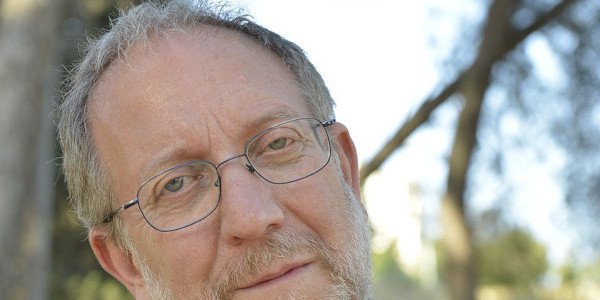How to halt the criminalization of Israel
23/05/2021 | Na stronie od 24/05/2021

Source: Sun, May 23, 2021, Los Angeles Times
By Yossi Klein Halevi
Why have so many progressives portrayed Israel, rather than Hamas, as the criminal culprit in the latest round of Mideast violence? How is it possible that a democratic state, with all its flaws and challenges, is losing the battle for public opinion against a medieval fundamentalist regime that deliberately targets civilians across an internationally recognized border and hides behind its own civilians for protection?
One answer was offered on television by comedian John Oliver: It’s not a fair fight. Israel holds overwhelming power, he noted, and so Israel must be the bully. Just look at the death toll on either side, continued Oliver, 10 times in favor of Israel. Morality as arithmetic: It doesn’t matter that Hamas initiated the shooting war by firing rockets into Israeli neighborhoods, nor that Israel tries to minimize Palestinian civilian deaths while Hamas tries to maximize Israeli civilian deaths. If Israelis want Oliver’s sympathy, more of us will have to die.
By focusing on Israeli power, critics ignore Israeli vulnerability. Israel’s paradox is that it is at once the regional power and the regional loner. Hemmed in by terror enclaves to our north and south, Israelis are acutely aware of the fragility of our borders and the enormous effort required to sustain our ability to protect ourselves.
Hamas’ success in firing at will at the Israeli home front — even announcing the timing of the next rocket barrage — has somber strategic consequences for Israel. Hamas, after all, is our weakest enemy. If it can manage to sustain a war against civilian Israel for nearly two weeks, what does that say about our long-term prospects in the region?
True, Israel’s Iron Dome anti-missile system destroyed most of the incoming rockets over our cities. But Israelis know another arithmetic: Hezbollah’s arsenal is 10 times greater than that of Hamas and far more sophisticated. The Iron Dome will not be able to protect us against a massive attack of rockets and missiles on multiple fronts.
Our more thoughtful critics understand those circumstances but argue that, as the dominant power, Israel must show restraint. Israelis respond that had the army acted without restraint, in disregard for human life, the casualties after more than 10 days of bombardment in densely populated Gaza would have been immeasurably higher.
Nonetheless, Israelis need to respect the concerns of those who critique our actions without demonizing us. But our capacity for thoughtfulness is sorely tested by the growing atmosphere of hatred against the Jewish state. For increasing numbers of its critics, Israel is incapable of acting in honorable self-defense because its very existence is indefensible. As anti-Zionists put it, Israel doesn’t commit crimes: It is a crime. For justice to be done, Israel must die.
It is hardly surprising that, given the mainstreaming of eliminationist rhetoric against the Jewish state, violence against Jews around the diaspora is growing. If Israel is evil, then surely diaspora Jews who support it — and even those who are indifferent to it — share the guilt.
This too is a paradox of this moment: As Israel is accused of being the bully, Jews are feeling increasingly afraid.
It is tempting for an Israeli reeling from the dual assaults of rocket attacks and criminalization to end the argument here. Many of us are doing precisely that, summing up the events of the last two weeks with an old and bitter critique: The world hates the Jews. It doesn’t matter what Israel does; in the end, we will find ourselves alone.
And yet, however outrageous the criminalization of Israel, we need to understand why even many of our friends are becoming increasingly anxious about Israel’s moral state.
Israel’s dilemma is that it is forced to wage asymmetrical wars against terrorists embedded in a civilian population while, at the same time, it occupies the Palestinians in the West Bank. To be perceived as morally credible in our battle against Hamas, we need to prove ourselves committed to a fair resolution of the Palestinian tragedy.
That depends on periodically renewing Israel’s historic commitment to a two-state solution. At every crucial juncture of this conflict, Israeli leaders have said yes to a two-state solution, and Palestinian leaders have effectively said no.
Yet under Prime Minister Benjamin Netanyahu, Israel has stopped seeking a credible two-state solution. The last prime minister to do so was Ehud Olmert in 2009. Olmert offered to withdraw from the West Bank, uproot dozens of settlements and redivide Jerusalem; Palestinian Authority leader Mahmoud Abbas ignored him.
There is no reason to assume that Palestinian leaders would be any more responsive today. But that doesn’t free Israel from the moral and strategic responsibility of offering the Palestinians an alternative future.
Israel is the only country whose neighbors have sentenced it to death. Israel is also the only democracy that is a long-term occupier of another people. To effectively fight terror, Israel must strive to maintain moral credibility as a reluctant occupier. A renewed Israeli peace initiative is our opportunity to convey our vision for a different Middle East.
A new peace process would also ensure that the next time we are forced to fight those committed to our destruction, our friends at least will be able to unequivocally affirm Israel’s moral high ground.
Yossi Klein Halevi is a senior fellow at the Shalom Hartman Institute in Jerusalem and author of “Letters to My Palestinian Neighbor.”